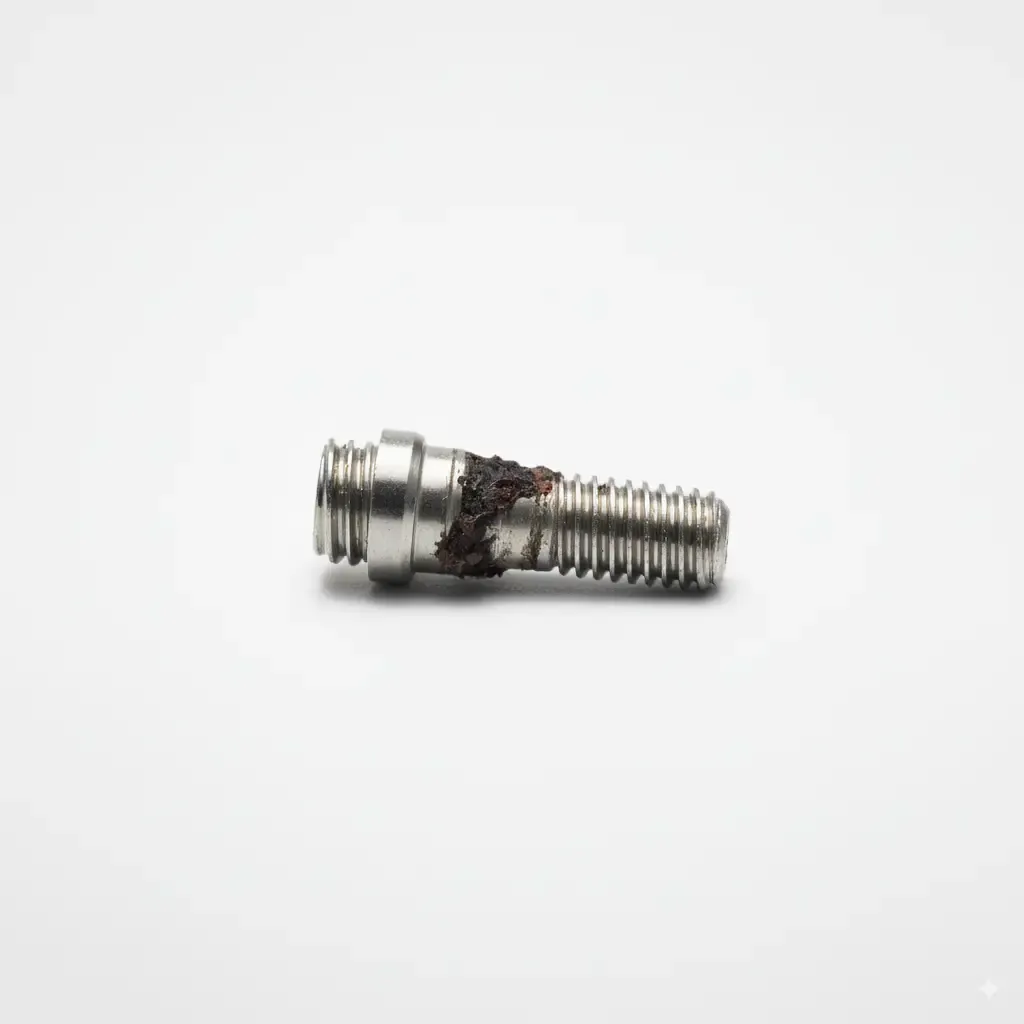When Your Dental Implant Hasn't Gone to Plan
Discovering that your dental implant has failed can be devastating. You've invested time, money, and hope into a solution that promised to be permanent. But here's what you need to know: implant failure doesn't mean the end of your journey to a beautiful smile.
At Dental By Design, we specialise in helping patients who've experienced implant failure. With our 99.12% success rate and comprehensive approach to revision procedures, we're here to ensure your second chance is your last procedure.
Understanding Why Implants Fail
Early Failure (Within 6 Months)
1. Failed Osseointegration
The implant doesn't properly fuse with your jawbone. This occurs in about 2-5% of cases and is often due to:
- Insufficient bone density
- Infection during healing
- Micro-movements of the implant
- Smoking or uncontrolled diabetes
2. Surgical Complications
- Nerve damage
- Sinus problems (for upper implants)
- Incorrect positioning
- Overheating of bone during placement
Late Failure (After Integration)
1. Peri-implantitis
The leading cause of late failure, affecting the gum and bone around the implant:
- Bacterial infection
- Bone loss around implant
- Inflammation and bleeding
- Progressive if untreated
2. Mechanical Failures
- Implant fracture (rare with quality implants)
- Loose abutment or crown
- Excessive force from grinding
- Poor prosthetic design
Recognising the Signs of Failure
Immediate Warning Signs
Progressive Symptoms
Don't wait if you notice these signs. Early intervention can sometimes save the implant or prevent complications that make replacement more difficult.
Your Recovery Options
Option 1: Implant Removal and Immediate Replacement
When Suitable:
- Adequate bone remains
- No active infection
- Good overall health
- Mechanical failure only
The Process:
1. Careful implant removal
2. Site assessment and cleaning
3. Immediate new implant placement
4. Provisional restoration if possible
Success Rate: 92-95% with proper protocols
Option 2: Staged Replacement with Bone Grafting
When Necessary:
- Significant bone loss
- Active infection present
- Previous multiple failures
- Compromised healing capacity
The Timeline:
1. Weeks 1-2: Implant removal and debridement
2. Weeks 2-4: Bone grafting procedure
3. Months 3-6: Healing and integration
4. Month 6: New implant placement
5. Months 9-12: Final restoration
Option 3: Alternative Restoration Methods
Bridge Work:
- Uses adjacent teeth for support
- No surgery required
- Faster completion
- May compromise healthy teeth
Removable Prosthetics:
- Immediate solution
- Non-invasive
- Lower cost
- Less stable than implants
The Dental By Design Difference for Failed Implants
Our Comprehensive Recovery Protocol
1. Advanced Diagnostics
- 3D CBCT scanning for precise assessment
- Bacterial testing to identify infections
- Bone density analysis
- Systemic health evaluation
2. Personalised Treatment Planning
- Custom surgical guides
- Computer-planned placement
- Biocompatibility testing
- Risk factor modification
3. Enhanced Surgical Techniques
- Minimally invasive removal
- PRF (Platelet-Rich Fibrin) therapy
- Advanced grafting materials
- Laser decontamination
Why Our Success Rate is 99.12%
Our Advantages:
- Experience: Over 15,000 successful implants placed
- Technology: Latest 3D planning and guided surgery
- Materials: Premium Swiss implants with lifetime warranty
- Team: Dedicated implant specialists
- Support: Comprehensive aftercare programme
Recovery Timeline: What to Expect
Week 1-2: Initial Healing
Week 3-4: Soft Tissue Recovery
Month 2-3: Bone Remodelling
Month 4-6: Replacement Phase
Ready to discuss your recovery options? Our specialist team has helped hundreds of patients successfully overcome implant failure.
Preventing Future Failure
Critical Success Factors
1. Oral Hygiene Excellence
- Brush twice daily with soft bristle brush
- Floss or use interdental brushes daily
- Use antimicrobial mouthwash
- Regular professional cleanings
- Immediate attention to any issues
2. Lifestyle Modifications
- Quit smoking: Doubles failure risk
- Control diabetes: Maintain HbA1c below 7%
- Manage bruxism: Wear nightguard if needed
- Nutrition: Adequate calcium and vitamin D
- Stress management: Impacts healing
3. Regular Monitoring
- Professional checks every 3-6 months
- Annual X-rays for bone levels
- Early intervention for any issues
- Maintenance of supporting structures
- Bite adjustment as needed
Our Lifetime Success Programme
Included with Every Implant:
- Lifetime warranty on implant
- Annual health checks
- Priority emergency appointments
- Hygiene programme discounts
- Free replacement if failure occurs*
*Terms and conditions apply
Cost Considerations for Replacement
Understanding Your Investment
What Affects Replacement Cost:
- Complexity of removal
- Bone grafting requirements
- Number of appointments needed
- Type of final restoration
- Additional procedures required
Finance Options Available
0% APR Finance
- 12-48 month payment plans
- No deposit required
- Fixed monthly payments
- No hidden fees
- Quick approval process
Insurance Considerations
- Some policies cover implant failure
- Medical necessity documentation
- We assist with claims
- Direct billing available
- Pre-treatment estimates provided
Patient Success Stories
Sarah's Second Chance
Key Factors in Sarah's Success:
- Identified undiagnosed gum disease
- Treated infection thoroughly
- Used guided surgery for precision
- Ongoing maintenance programme
Michael's Recovery Journey
Michael's Treatment Included:
- Major bone reconstruction
- Staged surgical approach
- Custom treatment plan
- Complete success achieved
Considering your options after implant failure? Let our experts create your personalised recovery plan.
Advanced Treatment Technologies
Innovations That Improve Success
1. Photobiomodulation Therapy
- Laser treatment enhances healing
- Reduces inflammation
- Stimulates bone growth
- Pain reduction
- Accelerated recovery
2. PRF (Platelet-Rich Fibrin)
- Uses your own healing factors
- Enhances bone regeneration
- Reduces infection risk
- Improves soft tissue healing
- Natural and biocompatible
3. Computer-Guided Surgery
- Precise implant positioning
- Minimally invasive approach
- Predictable outcomes
- Reduced surgery time
- Better aesthetic results
4. Zirconia Implants
- Metal-free option
- Excellent biocompatibility
- Natural aesthetics
- Resistant to bacteria
- Ideal for sensitive patients
Making Your Decision
Questions to Ask Your Dentist
About the Failure:
1. What caused my implant to fail?
2. Could this have been prevented?
3. Are there underlying issues to address?
4. What's my bone condition now?
5. Am I a good candidate for replacement?
About the Solution:
1. What's your success rate with revisions?
2. How many similar cases have you handled?
3. What technology do you use?
4. What guarantees do you offer?
5. What's the total timeline?
Red Flags to Avoid
Warning Signs of Inadequate Care:
- No investigation of failure cause
- Rushing into replacement
- No discussion of alternatives
- Lack of advanced imaging
- No warranty offered
- Inexperienced with complex cases
Why Choose Dental By Design
Clinical Excellence:
- Specialist implant team
- Advanced diagnostic capabilities
- Proven revision protocols
- Highest success rates
- Comprehensive warranties
Patient Care:
- Honest, transparent communication
- Detailed treatment planning
- Flexible finance options
- Ongoing support programme
- Emergency care included
Your Next Steps
1. Immediate Actions
2. Consultation Preparation
3. Treatment Planning
Ready to turn your implant failure into a success story? Our team is here to help you get back on track.
Frequently Asked Questions
About Failed Implants
Q: How common is dental implant failure?
A: Overall failure rates are 5-10% industry-wide, though at Dental By Design our failure rate is less than 1%.
Q: Can a failed implant make me sick?
A: Chronic infection from a failed implant can affect overall health. Prompt removal and treatment is important.
Q: Will my second implant be more likely to fail?
A: Not necessarily. With proper planning and addressing the original cause, second attempts often succeed.
About Treatment
Q: How painful is implant removal?
A: With proper anaesthesia, removal is typically less uncomfortable than the original placement.
Q: Can I get a temporary tooth during treatment?
A: Yes, we provide temporary solutions to maintain your appearance throughout treatment.
Q: How long does the entire process take?
A: Depending on your case, 3-9 months from removal to final restoration.
About Costs
Q: Will insurance cover replacement?
A: Many policies cover medically necessary replacement. We help with documentation.
Q: Is replacement more expensive than initial placement?
A: It can be, especially if bone grafting is needed, but our package pricing helps control costs.
Q: What if the replacement fails?
A: Our lifetime warranty covers replacement at no charge if our protocols were followed.
Conclusion: Your Smile Deserves a Second Chance
Experiencing implant failure is challenging, but it's not the end of your journey. With the right expertise, technology, and approach, successful replacement is not just possible—it's highly probable.
At Dental By Design, we've built our reputation on helping patients who've had disappointing experiences elsewhere. Our 99.12% success rate with revision cases speaks to our commitment to getting it right.
Remember:
- Failure doesn't mean you're not a candidate
- Technology has greatly improved outcomes
- Experience matters in complex cases
- The right team makes all the difference
Your Investment in Success:
- Expert evaluation and planning
- Advanced surgical techniques
- Premium materials with warranties
- Comprehensive aftercare
- Peace of mind
Don't let a failed implant define your smile's future. Contact Dental By Design today for your complimentary consultation and discover how we can help you achieve the lasting, beautiful smile you deserve.
Your second chance at a perfect smile starts here.
Sources and References
- Management of failed dental implants: A systematic reviewJournal of Oral Implantologyhttps://pubmed.ncbi.nlm.nih.gov/30073966/
- Peri-implantitis treatment and implant salvagePMChttps://www.ncbi.nlm.nih.gov/pmc/articles/PMC5502999/
- Success rates of implant replacement after failureClinical Oral Implants Researchhttps://pubmed.ncbi.nlm.nih.gov/27283492/
- Risk factors for dental implant failureNational Institutes of Healthhttps://www.ncbi.nlm.nih.gov/pmc/articles/PMC6033719/
- Bone grafting procedures for implant reconstructionInternational Journal of Oral and Maxillofacial Surgeryhttps://pubmed.ncbi.nlm.nih.gov/25506416/
All sources accessed and verified on . Medical information reviewed for accuracy and compliance with current guidelines.
Dental Implant Specialists - Dental by Design
Specialised dental implant centre in London with over 15 years of implant surgery experience. Our GDC-registered specialists have performed over 5,000 successful implant procedures with a 99.12% success rate.
Dental Implant Qualifications & Accreditations
- • ITI (International Team for Implantology) Fellowship - Advanced implant training
- • Masters in Oral Surgery - Specialist surgical qualification
- • FICOI (Fellow International Congress of Oral Implantologists) - Global recognition
- • GDC Specialist Registration - Oral Surgery & Periodontics
- • Annual CPD Requirements - 50+ hours implant-specific education
Treatment Standards & Safety
- • CQC Outstanding Rating - Highest healthcare regulatory standard
- • ISO 13485 Certification - Medical device quality management
- • CT Guided Surgery - Computer-guided implant placement
- • Lifetime Implant Warranty - Comprehensive treatment guarantee
- • 24/7 Emergency Support - Post-operative care available
Alternative Treatment Options
Dental implants are not suitable for everyone. Alternative treatments include conventional dentures, partial dentures, and dental bridges. During your consultation, we'll discuss all options to help you make an informed decision based on your individual circumstances, health status, and budget.
Medically Reviewed Article
Reviewed by Dr Saul Pineiro Amado , Lic Odont Santiago de Compostela 2014 Dentist
Share this article
Comments & Discussion
Join the Discussion
Have questions about dental implants? Share your thoughts or experiences below.
For immediate questions, call us at 0203 917 0262
Important Medical & Legal Information
Medical Disclaimer
This content is for educational purposes only and does not constitute medical advice. Individual results may vary. Always consult with a qualified GDC-registered dental professional for personalised assessment and treatment planning.
Contraindications may include: active infection, insufficient bone density, uncontrolled diabetes, heavy smoking, immunosuppression .
Potential complications: peri-implantitis, failed osseointegration, nerve damage, sinus problems, bone graft failure .
Regulatory Information
- GDC Registration: Verify practitioner credentials at gdc-uk.org
- CQC Registration: Check practice rating at cqc.org.uk
- Compliance: GDC-registered, CQC-regulated
Last Updated: | Next Review:

